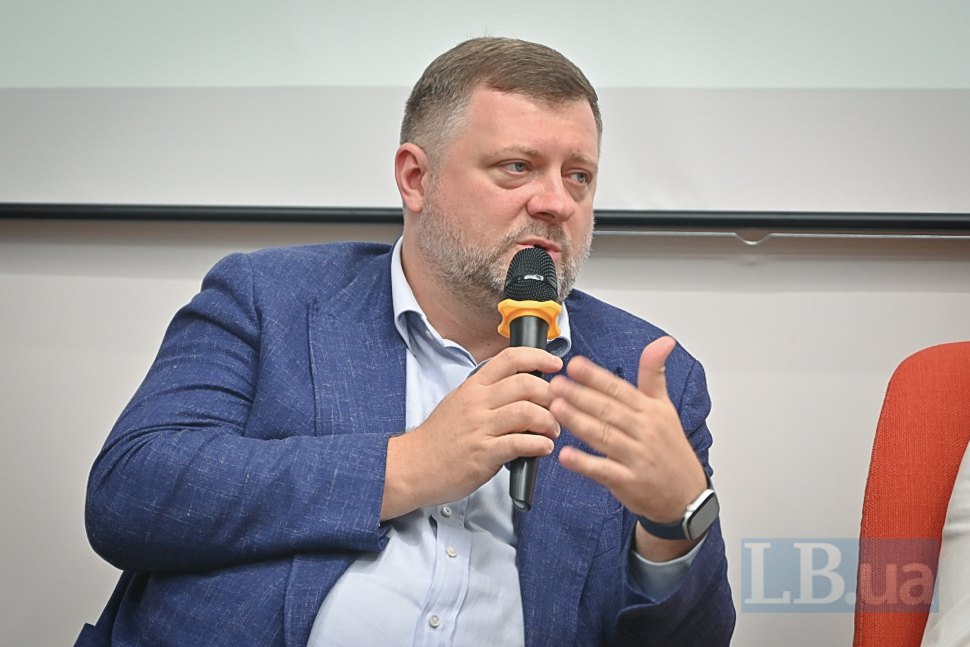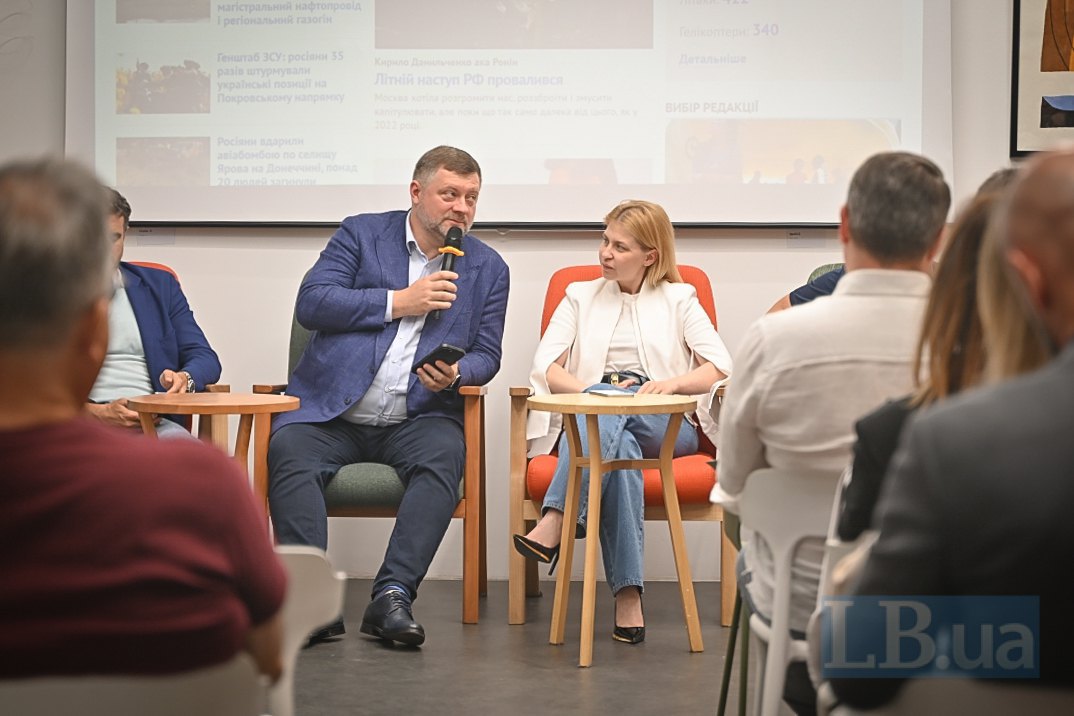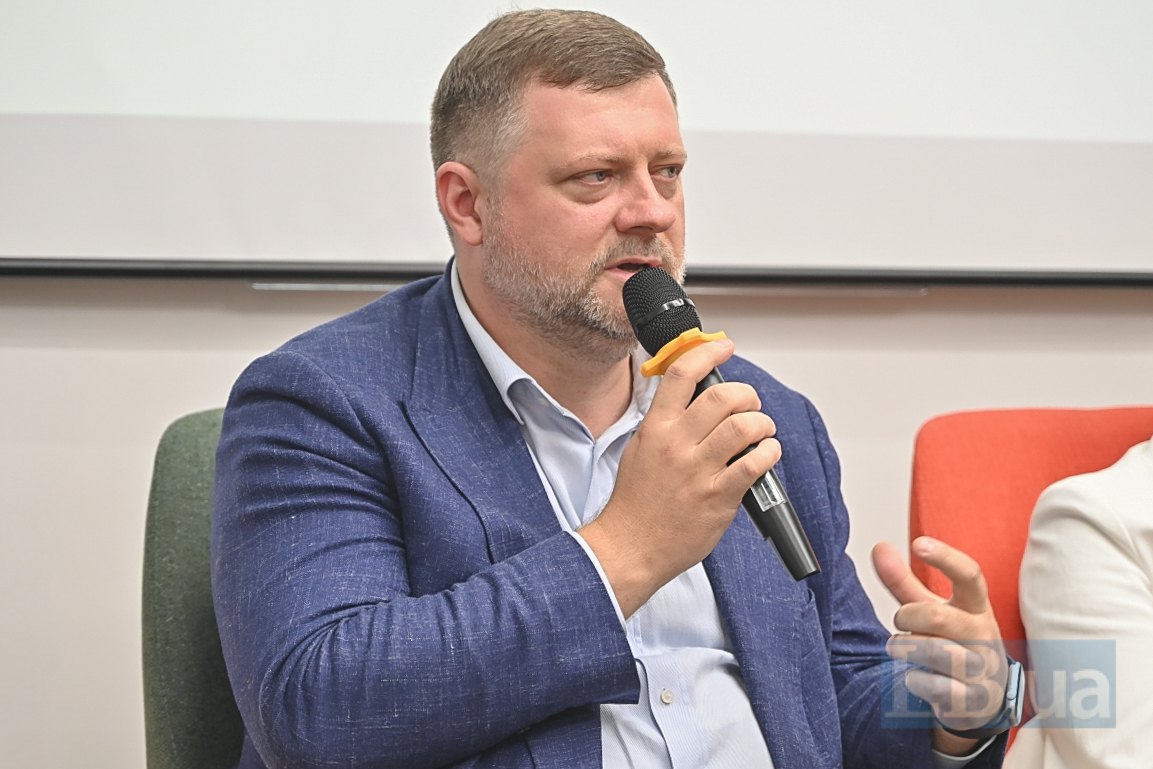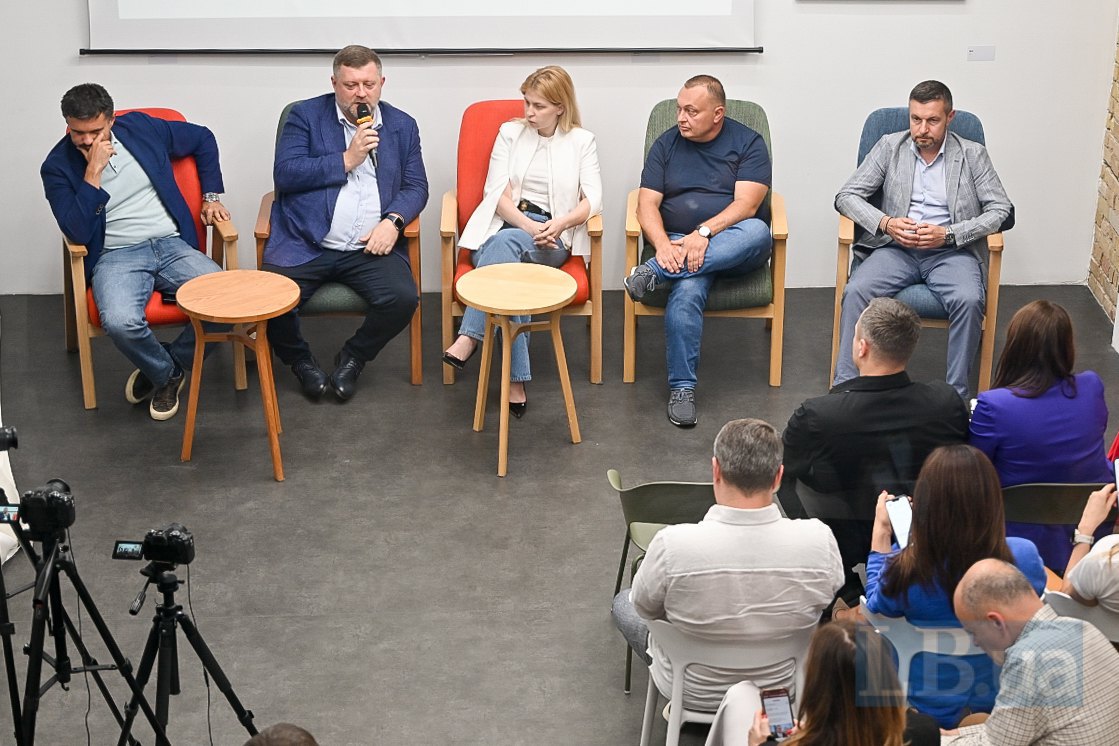
"Under such conditions, it is difficult for society to trust parliament — it is not fighting directly, like the president. We are not military leaders or commanders-in-chief — we simply make various decisions. Of course, there will be questions about the institution. But we have our own work to do, and we have to do it. The country needs a budget, and we have to vote on it," emphasises Oleksandr Korniyenko.
According to him, the military agenda is always relevant for the Verkhovna Rada — from making changes to the budget (one adjustment was made recently, and the first deputy speaker promised another, major one in the near future — Ed.) to regulating certain technical issues that help the army improve management and speed up decisions.
Also on the agenda are the ‘centennial agreement’ with the United Kingdom and European integration. The latter, the parliamentarian emphasises, poses the most challenges. Ukraine has missed the deadlines for adopting three bills from the Ukraine Facility package (‘money in exchange for reforms’). First, this is an unpleasant situation in relations with partners. Secondly, the state may lose out on €1.5 billion in funding.

‘If we don't do this, the budget won't receive funds, and ultimately, we will have a fiscal crisis... We are talking about 1.5 billion euros, which is a fairly large amount, but it is manageable. However, overall, the financial and domestic political challenges are growing,’ said Oleksandr Korniyenko.
He added that the Ministry of Finance is forced to engage in tough negotiations with the IMF due to the need to increase the budget deficit, as there is no money to pay the military's salaries for another two months. In addition, according to the deputy head of the Verkhovna Rada, the Ministry of Finance has agreed with the IMF to change its strategic planning from ‘six months in advance’ to ‘more realistic.’
Korniyenko also said that the new government is working with partners to change the indicators, in particular in the Ukraine Facility, and a small technical review has already taken place.
"I think this is just the beginning, because it's one thing to burden the country with reforms (and the Ukraine Facility is 70-odd laws and a bunch of subordinate legislation) at the end of 2022, when we liberated Kherson, and a counteroffensive is planned, which for some reason the whole world knows about. It's another thing at the end of 2025. Next year, the Ukraine Facility will end altogether. Europeans already had plans to reform us enormously, we were supposed to open a cluster, but now we are in a completely different reality.
We need to work on our mistakes. We should only go public after we understand internally whether these reforms are inappropriate now, whether we should postpone some of them because there is too much going on, and whether these reforms, given the political situation, should be more or less consensual," the parliamentarian noted. (The latter refers to a comment by his colleague in the Verkhovna Rada, Roman Kostenko, a deputy from the Holos party, on the advisability of adopting certain laws. According to him, one of the bills adopted in the first reading within the framework of the Ukraine Facility — on the basic principles of housing policy — completely cancels the rights of military personnel to obtain housing as a non-European norm. Korniyenko is confident that this will be corrected before the second reading. — Ed.).

Among the challenges, the deputy head of the Verkhovna Rada emphasised the intensification of internal political discussions, particularly due to certain initiatives by the Ministry of Defence. ‘It is not yet critical, it does not lead to the blocking of the parliament's work, but it exists,’ Korniyenko acknowledged.
The deputy speaker is confident that security threats will not interfere with the work of the Verkhovna Rada either.
"Organisationally, I think we will find a way to vote (in case of a threat to the Verkhovna Rada building — Ed.) — with our hands, feet, if we need to adopt the budget and pay the military. We will move and transport the system, etc.," the parliamentarian assured.
What about the elections?
‘It would be nice if they were held in this country sometime,’ says the second-in-command in parliament. He admits that the deputies are tired.
"It's been seven years. We are in our ninth convocation. Five out of nine were dissolved early. That is, Ukraine has no tradition of parliament over time," noted Oleksandr Korniyenko.
But he is confident that elections are impossible until there is at least a stable truce.
"Right now, we are technically being attacked by about 700 Shaheds. On election day, there could be 5,000 of them. Even with our air defence capabilities to shoot down 95%, 5% is more than 200 suicide bombers. That's 200 polling stations in Kyiv or elsewhere. These will be the bloodiest elections in the world. Who needs that?" argues the Deputy Speaker of the Verkhovna Rada.

At the same time, he acknowledges that work on electoral legislation is continuing in parallel.
"There are two approaches. The first group includes representatives of our respected civil society organisations — Olya Ayvazovska, Opora, IFES (The International Foundation for Electoral Systems, a non-profit international organisation that supports citizens' right to free and fair elections. — Ed.). They say: as soon as the elections begin, there will be such a mess, chaos, you will write something wrong, forget something, fail to legalise temporary polling stations, something else — and it will be difficult to hold the elections. They can be understood; they are election experts. They want to prepare a high-quality text with all the nuances in advance.
On the other hand, there are many people who know that as soon as you say the word ‘elections’ out loud in the Verkhovna Rada, the elections begin. What does this mean? ‘Someone starts gathering campaign teams, conducting polls, recruiting some technologists, returning from abroad or from the army, and so on,’ Korniyenko noted.
So the discussions continue, he adds, and are even reflected in the registration of certain bills.
‘And Ruslan Oleksiyovych (Stefanchuk, Speaker of the Verkhovna Rada — Ed.) is working,’ says the first deputy speaker, commenting on the information that Stefanchuk discussed changes to the electoral law with ambassadors, "his assistants are working. The Central Election Commission has done a lot of work — seven or eight chapters in seven or eight areas. The work has been going on for three years. But when it comes to the elections, we will gather all this and simply do it more efficiently," Korniyenko said.
Finally, he emphasised that the electoral legislation will be changed, as it is impossible to hold elections under the current legislation, taking into account security factors, frontline territories, millions of people abroad, etc.








